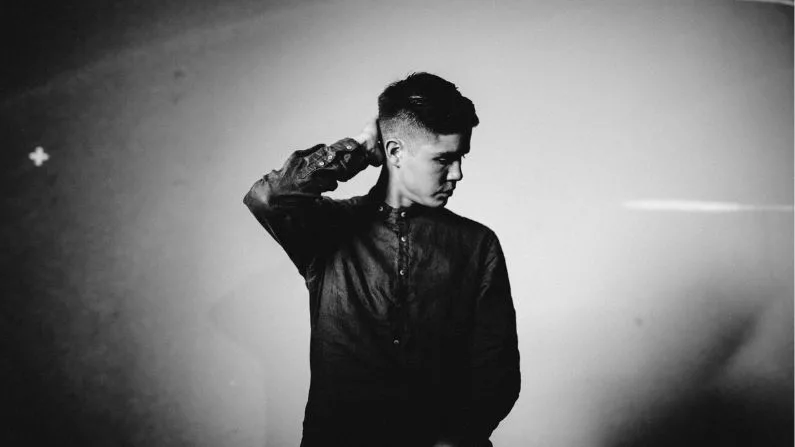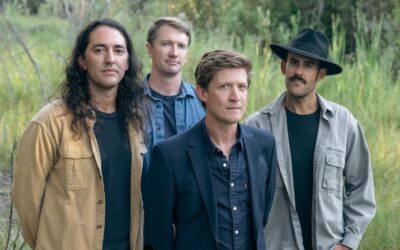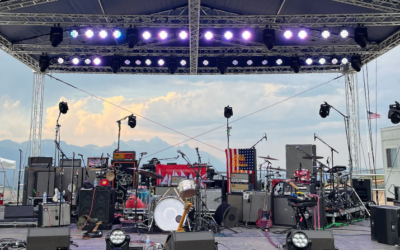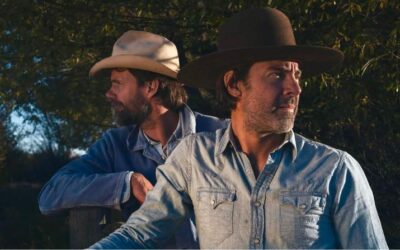Cole Edwards, known by his stage name OAKK, is a music producer, DJ, graphic designer and animator based in Vancouver, Canada. With musical influences including drum and bass, dancehall, trap and hip-hop, OAKK’s unpredictable sound defies genre while setting the dance floor ablaze.
His deep grooves and hypnotizing melodies have been captivating audiences at premier festivals like Lightning in a Bottle, Shambhala and Bass Coast and it feels like he’s just getting started.
In advance of the 13th installment of the annual Intergalactic Ball, on Saturday, March 18th at Handfire Pizza, OAKK joined KHOL for an interview.
The following interview transcript has been edited for clarity and brevity. This conversation was recorded on Thursday, March 16.
JACK CATLIN/KHOL: You’re known for having a great range when it comes to your DJ sets, but there seem to be at least two main focal points when making your music, groove and vocals. Can you touch on the importance of implementing those two key elements in your work?
OAKK: I’ll start with groove. I just read this biography about J Dilla. It’s called “Dilla Time.” It really does a great job of simplifying what groove means and what and how he impacted not only beatmakers but actual live musicians because live drummers would hear his beats and be like, ‘This is wrong.’ But then they would be nodding their heads to it, and then they’d be like, ‘How do I how do I play this?’ So that actually influenced other live musicians when recording. It’s a super interesting book. Basically, it [groove] is kind of like head-nod-ability. When you listen to something kind of syncopated on the grid, it’s very rigid. And as soon as you start shifting things off time that’s when you kind of like start bobbing your head to it and it has the groove and it’s kind of infectious.
I call it the eight-bar test when I’m making music. If I can listen to just a drum beat or just a section of a song for eight bars over and over again, that usually means it has the sauce to have the groove and maybe make a complete song.
And recently I’ve actually kind of been making stuff more on the grid, which I think has its role too. For a lot of rap and stuff, it’s not too swingy when you’re listening to just a simple 808 high hat pattern with 16s and syncopated action. I actually think it sounds kind of cool. So there is a time and place for both, which I think is important to keep in my repertoire. But now for vocals, I think those are important and I think it makes people like my music because it kind of gives them a familiar sort of listening experience, like they’re listening to a singer. Even though I’m just chopping up vocal samples, it adds a human element that I think people really latch onto. When I’m making music, my stuff is very simple. It’s just a beat, bassline, maybe a melody, but usually the vocals kind of tie everything together. I actually find it very difficult to write a song without vocals now because I just feel like it’s empty or kind of missing something.
KHOL: I want to touch on environment, surroundings, whether it be the early years you laid down at the Hifi club in Calgary, your time spent in Madrid or currently in Vancouver. How much do your surroundings, your local environment inform your sound?
OAKK: I would say a lot. In Madrid, our place was really nice, but there was no sunlight in our house. We were in an internal apartment in our building and I actually realized I do need sunlight. But my music was getting very dark because I would spend hours throughout the day and then go outside and be like, ‘Oh, yeah, it’s daylight out.’ So that was a big influence. And the city I live in and the people I interact with, you know, that influences a lot of things. Sometimes, like subconsciously I don’t really notice. But when I listen back to the music, you can definitely tell and things like when I’m going on a tour influences a lot because I’m designing a set that, ‘Oh, maybe I have an idea for.’ There’s a section where I have an idea for an edit of a song that would fit at this BPM.
A lot of the time for live shows, I’m making stuff that’s more high energy that I can play out at the club. And then you know what I’m thinking of what someone wants to listen to at home. That’s kind of influencing how I’m writing music as well. But then going back to like the Hifi days because I was playing, it started out as a monthly, then it turned into a weekly and I was kind of hungry back then. So I wanted to be playing new music every week to test it out because I was fortunate enough to have a big sound system that I was able to listen to all my demos on. So back then it was kind of just beat making, just simply how can I make stuff that people want to dance to. And then I get to test it every week. Which is kind of how I built my foundation of producing music. And then now it’s kind of graduated into a more thoughtful, mature way of making music and thinking about how to create the end product and the process that it takes to get there.
KHOL: Well, I love that you touched on that, making music for kind of three separate situations, either at home, in a smaller club or these big marquee festival sets that you’ve been doing. You’ve been tearing it up at big-time festivals like Bass Coast, Lightning in a Bottle, Shambala, and most recently, the Okeechobee Festival in Florida. What’s it like performing on those big stages and how do you approach preparing your sets for marquee gigs like those?
OAKK: It’s still something very new to me. I cut my teeth in small rooms where I’m at eye level with the crowd, which I really value. Playing those, like 9 to 10 p.m. opening club slots because that’s the real test of how can you get people that are coming into the club, sitting down. How can you build the dance floor? And that’s kind of given me the foundation to kind of be more playful and do what I want even on the bigger festival stages. The hardest thing for me is I usually can’t see everyone’s facial expressions or even how people are dancing or moving, which is very informative for me as a deejay on these bigger stages because I’m so far away. So it’s definitely something I’ve had to get used to. And maybe I’m not playing a DJ set in the same way that I would in a club. I’m more focused on planning out an experience, with the music that I’ve made and the music that I like. And I’m learning that not everything that I could play in a smaller club setting is going to work on a festival stage setting now that I’m playing those larger stages.
Listen above for KHOL’s full conversation with OAKK.





